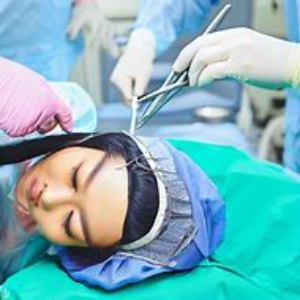Surgical Procedures to Restore Hair Growth
Today, I want to shed some light on an exciting topic that’s gaining momentum in the realm of hair restoration/hair transplant surgery. Whether you’re personally considering it or seeking advice for a friend, I’m here to provide some helpful suggestions and reasons behind them.
Hair loss can be distressing, affecting self-esteem and confidence. Thankfully, with advancements in medical science, hair transplant surgery has emerged as an effective solution to restore hair growth. More and more women are considering this surgical option to regain their lush locks and feel rejuvenated.
Causes of Hair Loss in Females
Before diving into hair transplant surgery, it’s essential to understand what causes hair loss in women. Female hair loss can be triggered by various factors, including hormonal imbalances, hereditary conditions, stress, and unhealthy lifestyle habits. Identifying the root cause is crucial to address the issue effectively.
Understanding Hair Transplant Surgery
Hair transplant surgery involves the relocation of hair follicles from one part of the body (usually the back of the head) to the balding or thinning areas. The two primary techniques are Follicular Unit Transplantation (FUT) and Follicular Unit Extraction (FUE). Both techniques have their advantages, and your choice will depend on individual factors.
Who is a Good Candidate for Hair Transplant Surgery?
Not everyone is an ideal candidate for hair transplant surgery. Surgeons evaluate factors such as the extent of hair loss, donor hair availability, age, and overall health before recommending the procedure. It’s essential to have realistic expectations and understand the potential results.
Choosing a Qualified Hair Transplant Surgeon
When it comes to hair transplant surgery, the expertise of the surgeon plays a significant role in the success of the procedure. Research extensively, read reviews, and consult multiple specialists to find a qualified surgeon with a proven track record in female hair restoration.
Preparing for Hair Transplant Surgery
Once you’ve chosen a skilled surgeon, you’ll need to prepare for the surgery. Your doctor will provide you with specific guidelines to follow, such as avoiding certain medications and lifestyle habits that may interfere with the procedure’s success.
The actual hair transplant surgery typically takes several hours, depending on the extent of the restoration. During the procedure, hair follicles are carefully extracted from the donor area and transplanted into the targeted areas. The surgeon’s precision ensures natural-looking results.
The recovery period after hair transplant surgery is critical for optimal results. Follow your surgeon’s instructions diligently, including proper wound care, medications, and avoiding strenuous activities.
Be patient after the surgery, as hair growth is a gradual process. It may take several months for the transplanted hair to start growing and around a year to witness full results. The wait will be worth it when you see your new, flourishing hair.
Risks and Side Effects
As with any surgical procedure, hair transplant surgery comes with potential risks. These may include infection, scarring, or shock loss (temporary shedding of transplanted hair). However, with proper care and an experienced surgeon, the chances of complications are significantly reduced.
Alternatives to Hair Transplant Surgery
If you’re not ready for surgery or seeking less invasive options, non-surgical alternatives like topical treatments, PRP therapy, or low-level laser therapy may be worth exploring. Consult with a specialist to determine the best option for your unique needs.
Costs and Financial Considerations
Hair transplant surgery costs can vary depending on factors like the extent of restoration and the surgeon’s experience. While it may be a significant investment, consider it as an investment in your confidence and happiness. Some insurance plans may cover hair transplant surgery for specific medical reasons, so check with your provider.
Final Thoughts
Hair transplant surgery can be a game-changer for women experiencing hair loss. It’s essential to research thoroughly, consult with qualified professionals, and have realistic expectations. Remember, restoring your hair is not just about physical appearance but about embracing your self-image and feeling confident in your own skin.
Frequently Asked Questions?
Is hair transplant surgery painful?
While there may be some discomfort during and after the procedure, local anesthesia is used to minimize pain during surgery. Any post-operative discomfort can usually be managed with prescribed pain medications.
How long does it take to see results after the procedure?
You may notice shedding of the transplanted hair in the first few weeks, but don’t worry, this is a normal part of the process. New hair growth typically starts within 3 to 4 months, with full results visible in about 9 to 12 months.
What is the cost range for hair transplant surgery?
The cost can vary widely depending on the surgeon, location, and extent of the procedure. On average, hair transplant surgery can cost anywhere from $4,000 to $15,000.
Are there any potential risks of scarring?
In FUT (strip) procedures, there is a risk of linear scarring in the donor area, but it is generally well-concealed by surrounding hair. FUE procedures typically result in tiny, barely visible scars.
Can hair transplant surgery be performed on other body parts?
Yes, hair transplant surgery can be performed on other body parts, such as the eyebrows, beard, or chest, to address hair loss in those areas.






0 Comments